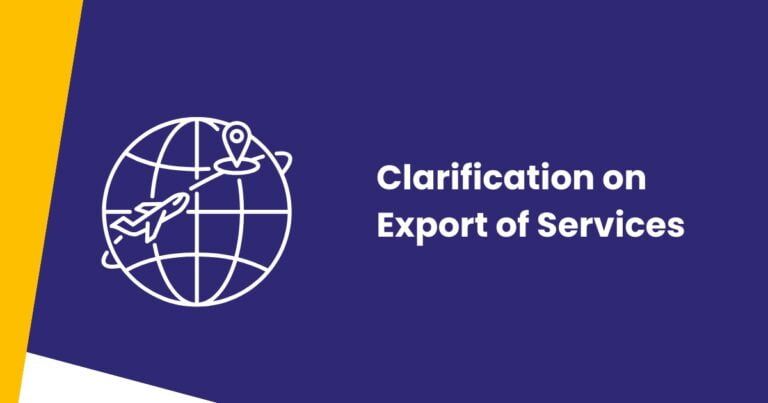Expanding abroad often means dealing with tax authorities in different countries. They all lay claim to the global income and revenues. This double taxation creates cash flow pressures. It also hurts the profits from international operations.
However, the Double Tax Avoidance Agreement (DTAA) signed between India and UAE prevents high taxes. It applies to many common business scenarios for entities in the UAE.
Let us understand what DTAAs aim to achieve. Exactly what does the Indo-UAE treaty cover? Who can benefit? How does it impact taxation across key income categories? What is the application process?
What is the Objective of DTAAs?
- DTAAs are bilateral agreements. They are between two countries that share economic ties. These ties are through trade and investment flows.
- They are crafted to stop scenarios where both nations tax the same revenue. This is also called double taxation.
- For example, an Indian firm earns royalties from clients in UAE. The royalties could, in theory, be taxed by both countries if there is no treaty.
- The two signatories decide specific income types and tax rates to prevent dual claims. Credit mechanisms also come into play.
Thus, DTAAs make good conditions for companies from the two nations. They allow them to grow cross-border operations and profits.
Genesis of India-UAE DTAA
- The agreement became effective in 1993 and has seen many amendments over decades.
- Covers direct taxes like corporate income tax, personal income tax.
- Applicable to UAE and Indian tax residents – both companies and individuals.
- It has a big influence. It allows seamless flow of investment, services, workforce, and goods between the two regions.
Which Aspects does the India-UAE DTAA Cover?
Lower Withholding Tax Rates
It caps tax rates on cross border incomes like:
- Dividends: Lower 10% rate vs higher 20% domestic rates otherwise
- Interest: Only country of receipt can tax
- Royalties & Fees: Capped at 10% rate
This avoids excessive tax leakage from international payments and improves net inflows.
Capital Gains Relief
Gains from sale of assets taxed only by country of residence, not source state. This dwelling sale by a UAE resident triggers no tax in India for instance.
Eliminates Permanent Establishment Risks
For example, profits of a UAE parent firm won’t be taxed in India just because of sales from UAE into India. Taxation only happens once a physical office (PE) is proven. Tax authorities require a long term presence with proven revenue intent. It is needed to establish a PE.
Mechanism for Tax Credits
Taxes paid in one nation can be claimed in the other. This prevents double taxation on the same earnings.
Dispute Resolution & Legal Clarity
Mutual Agreement Procedure (MAP) is another service provided by DTAA. It settles conflicts without the need for costly litigation. It also makes things more clear. Transfer pricing, withholding tax, and other topics are covered. Future uncertainty is avoided by this clarity.
The Indo-UAE tax treaty has many beneficial provisions. They apply to various income types and business scenarios. The treaty covers residents of both countries and eliminates dual tax claims.
Who can Tap the Benefits Under the DTAA?
The key pre-requisite is that the person or business must qualify as a tax resident in one of the two countries. Following should be noted regarding residency:
For UAE Tax Residency
- Necessary licenses from Dubai/Abu Dhabi/Sharjah authorities.
- Physical premises and staff proving substantive, active business activities.
For India Tax Residency
- Staying in India for over 180 days during fiscal year.
- Display residential ties like house ownership etc.
Furthermore, professionals are essential. Under the constantly evolving DTAA regulations, they are required to interpret certain business and income profiles. They are also required to support claims of residency. Additionally, accurate documentation requires them.
How the DTAA Impacts Specific Income Categories
Business Profits
UAE firms’ profits are exempt from Indian taxes if no PE found in India. Long term physical presence displaying local revenue earning intent must be verified. Useful for trading firms and service businesses delivering cross border. Saves them from income tax filing complications in India due to mere sales from UAE.
Dividend Income
Withholding tax lowered substantially to 10% tax on dividends instead of higher 20%+ general rates. This applies for dividends paid from Indian company to shareholders in UAE or vice versa. Saves major tax leakage for holding company structures with foreign investors.
Interest Income
As per DTAA, any interest paid from UAE to Indian residents will just face taxes in India. UAE cannot levy any charge. And vice versa. This elimination of two claims on the same earnings enhances cash flow clarity.
Capital Gains
Gains from sale of real estate or securities taxable only by country of residence and not source country. Saves major burden for investors and inheritors especially.
Royalties
UAE can collect 10% taxes on royalties paid from there to Indian firms under the DTAA. But India offers credits so that the earning does not face double tax claims. Lowers impact on IP related payments.
Overall, the treaty has many advantages. It affects the income streams and business scenarios. It helps entities from both geographies.
Applying for DTAA Benefits: Documents and Process
The application process requires submitting accurate forms and supporting documents:
- Proof of tax residency in India and UAE.
- Audited financial statements showing income breakup.
- Tax deduction certificates.
- More e.g. employment contracts, asset deeds etc.
Our chartered accountants having vast DTAA expertise can:
- Accurately determine if your firm can benefit under the treaty.
- Robustly maintain documents proving residency.
- Assist in filing DTAA specified forms like Form 10F.
- Help provide data for income breakup across geographies.
- Globally optimize declared incomes and tax outflows.
Conclusion
In summary, the India-UAE Double Tax Avoidance Agreement offers real tax relief. It applies to many common business scenarios for entities from both countries. By proving tax residency in either place and keeping good records, you can reduce cash flow and compliance headaches. This will help boost international operations. Get in touch to assess DTAA eligibility for your firm now!
Frequently Asked Questions
Yes, with the right proofs and declarations, the tax on cross border interest payments can be cut a lot or eliminated under the treaty.
Capital gains from property sale attract taxes only in country of residence i.e. India as per DTAA. Rental income may also be adjusted to optimize outflows.
No, the DTAA has strong protections in place for business profits between India and UAE. Taxes apply where value creation happens, not merely sales jurisdiction. Treaty to aid your expansion.





